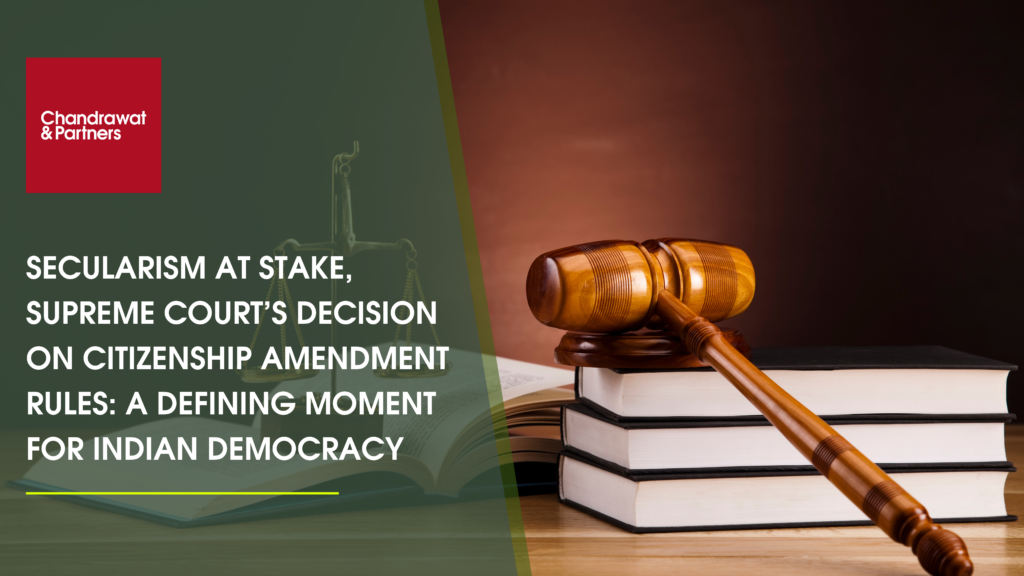Share :
Introduction
In a recent development that has sparked significant debate across the nation, the Supreme Court of India has declined to pass an interim order staying the Citizenship Amendment Rules. This decision has far-reaching implications for the Indian democracy and the ongoing discourse surrounding citizenship rights and inclusivity.
WHAT IS CITIZENSHIP AMENDMENT ACT?
The Citizenship Amendment Rules, which were introduced amidst much controversy, have been a subject of intense scrutiny since their inception. These rules, a part of the Citizenship Amendment Act (“CAA”) passed in 2019, aim to provide expedited citizenship to persecuted minorities from neighboring countries such as Afghanistan, Bangladesh, and Pakistan, except Muslims. Critics argue that this selective approach undermines the secular fabric of the Indian Constitution and discriminates against Muslim immigrants.
In response to multiple petitions challenging the constitutional validity of the Citizenship Amendment Rules, the Supreme Court was approached to intervene and provide clarity on the matter. However, the recent decision to decline passing an interim order for a stay on the rules signifies a cautious approach by the apex court.
SUPREME COURT’S DECISION
The Supreme Court’s decision to uphold the Citizenship Amendment Rules’ implementation highlights the fine line that must be drawn between judiciary’s role and legislative authority. The court may have opted to respect democracy and let elected officials use legislative action to resolve the matter by declining to intervene at this point.
However, this decision has not been without its critics. Many contend that the Indian Constitution’s cherished secularism and equality values were overlooked by the Supreme Court. They argue that the Citizenship Amendment Rules’ discriminatory nature is contrary to the country’s core values and creates a risky precedent for policies that discriminate against people based only on their religious identity.
Furthermore, the Supreme Court’s decision raises questions about the judiciary’s role as the guardian of fundamental rights and constitutional values. In a democracy, the judiciary plays a crucial role in ensuring that the rights of all citizens are protected and that no community is marginalized or discriminated against. The reluctance to intervene in a matter of such significance has led to apprehensions about the court’s commitment to upholding these principles.
CONCLUSION
In the middle of these discussions, it is critical to understand that citizenship and inclusivity are moral imperatives as well as legal and political ones. It is a reflection of a country’s dedication to justice and equality for all of its citizens as well as its collective conscience.
As the matter continues to unfold, it is incumbent upon all stakeholders – the judiciary, the legislature, and civil society to engage in a constructive dialogue and work towards solutions that uphold the ideals of pluralism and tolerance. The Supreme Court’s decision may mark a pivotal moment in India’s democratic journey, one that calls for introspection and collective action to safeguard the principles upon which the nation was founded.
For more information or queries, please email us at
enquiries@chandrawatpartners.com




